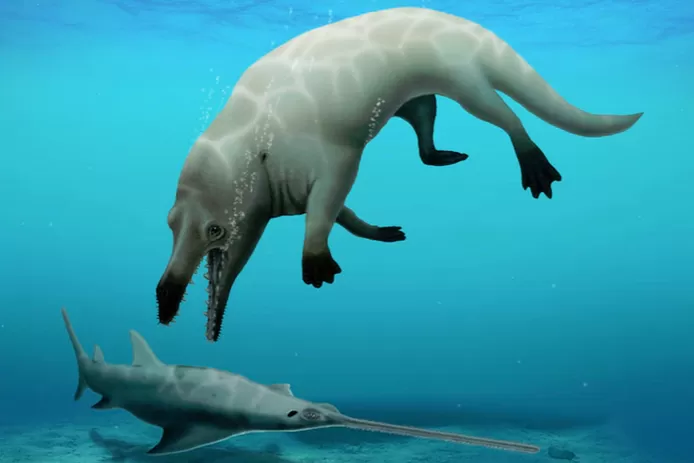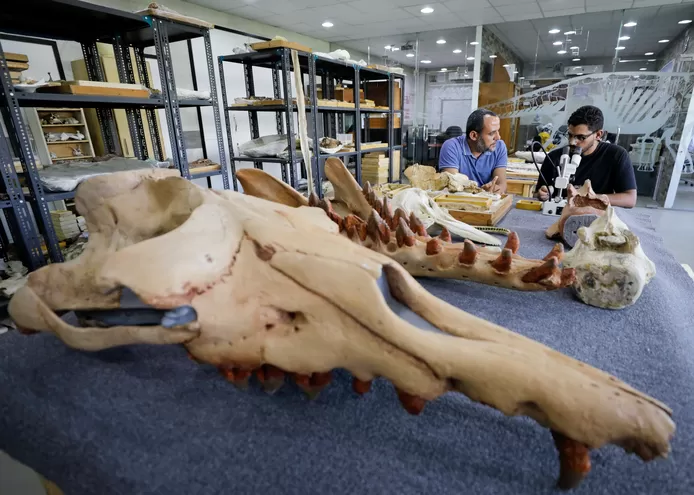Four-legged cetacean found in Egypt

Scientists have learned more about how whales evolved. This is because a fossil of a cetacean with four legs has been found in Egypt. The species, Phiomicetus Anubis, probably lived about 43 million years ago.
Principal investigator Abdullah Gohar speaks to Reuters news agency of an important find. “It is a new whale species. This find is important for Egyptian and African paleontology.” The study by Gohar and his team was published in The Royal Society on Wednesday.
Large jaws
Parts of the skeleton were found in the Western Desert in Egypt. That area used to be underwater, which is why scientists are now finding fossils there with some regularity. The Phiomicetus Anubis weighed an estimated 600 kilograms and was 3 meters long. The whale was a predator and had large jaws to grab prey with.

The name of the animal refers to Anubis, the Egyptian god of the dead. The animal belongs to the Protocetidae, a group of extinct whales that were in the midst of the transition from land to sea animal.
On land and in the sea
This is not the first time that the fossil of a four-legged whale has been found. However, it is still not entirely clear how exactly whales evolved. With the discovery of this amphibious whale, which thus lived both on land and in the sea, probably the first of its kind in Africa has been found.




